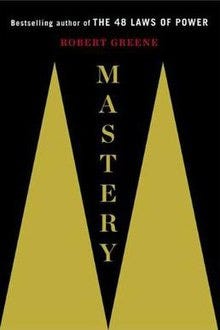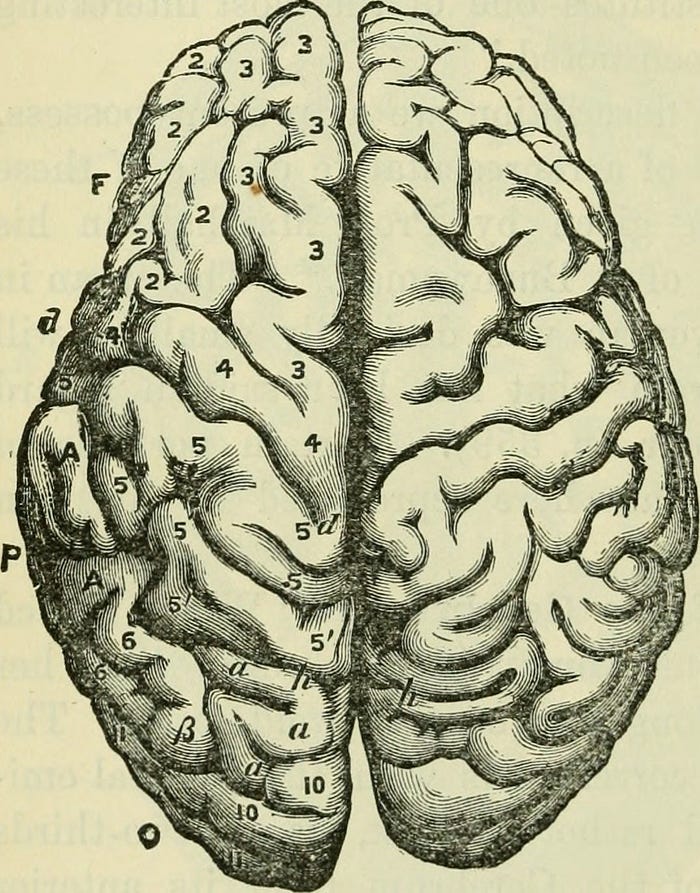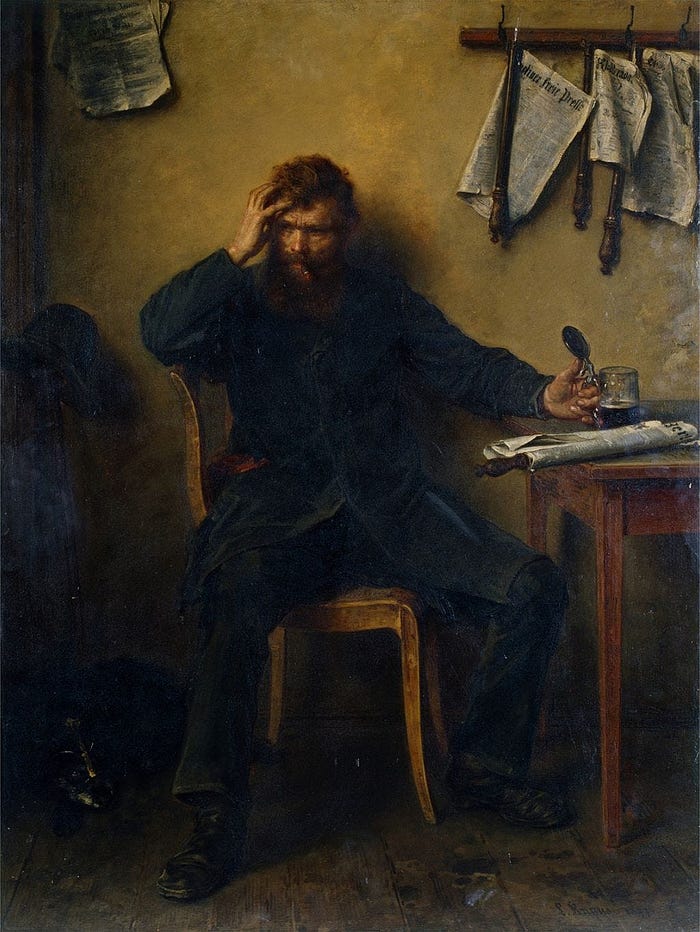Robert Greene Meets with Andrew Huberman: The Search for God is Real

Are people looking for God without knowing it?
Subscribe to our Substack newsletter:
https://streettheologian.substack.com/
Robert Greene meets Andrew Huberman
1. Purpose
2. Justice
3. Love and transcendent connection
4. Worshipping a creation?
5. The self
I recently listened to a podcast between famous author Robert Greene and world-renowned neuroscientist and podcaster, Andrew Huberman.
What struck me about this conversation was Robert Greene’s continued references to things of a sublime or transcendent nature as well as his allusions to worship.
Greene on God
Yet, Greene, by contrast, makes minimal reference to God despite appearing to be looking for God the whole podcast.
Today we will cover 5 topics that came up in the podcast, which, I contend point to the Transcendent which is best explained through theism.
Greene admits in the podcast, “I wake up every morning and I pray to God thank God.” However, he has on other occasions reflected a somewhat vague openness to the existence of God without allowing for hardcore atheism.

Zen Buddhism, Atheism and Judaism
Greene is a disciple of Zen Buddhism. Regarding his Jewish roots, Greene purports elsewhere:
I’m Jewish but I don’t have a hardcore spiritual practice. I’m not hardcore Atheist; I’m sort of how Einstein was: He wasn’t a believer in the Jewish God. I’m intrigued by the sense that there’s something there. I think it would be good for people to be honest about human nature and about life and how people operate in the world. We have too many myths that make it very complicated for us…We are still primates. We are not descended from angels.
Greene’s confusion
It is perhaps this vagueness and lack of clarity that leads to many confused comments from Greene in the podcast.
As GK Chesterton warned, “When men choose not to believe in God, they do not thereafter believe in nothing, they then become capable of believing in anything.”
Perhaps Green’s ideas that the self is an illusion, that we have a unique purpose but are primates and that we should worship our own brains fall into this category!
Searching for the sublime
Like the rest of us, Greene is searching for the Transcendent. He has a strong conviction we are more than mere particles or evolved accidental matter with ultimately no purpose.

One-ism or two-ism?
In Greene’s search for the sublime, he is effectively advocating for two-ism. The idea there is something transcendent to us and of a fundamentally different nature from us.
However, under Buddhism all is of the same illusory nature including the self.
Under materialism, all is matter and movements.
Huberman, prayer and the Bible
Huberman has also recently outlined how praying to God is a daily practice of his which helps him see his character flaws. Moreover, Huberman has discussed how he is reading the Bible from cover to cover which gives him incredible peace. Huberman exclaims “it works”!
Much to learn from Greene and Huberman
Huberman is a highly influential figure and his practices of praying and reading the Bible have led to some of his avid fans considering taking religion more seriously.
Robert Greene is a prolific and highly gifted writer. Despite criticising some of Greene’s positions, I hold all of us have much we could learn from both Huberman and Greene.
Andrew himself recalls how Greene’s book Mastery played a pivotal role in shaping the course of his life.

Now to the 5 points that Greene mentions for brief discussion today:
1. Purpose
The podcast centres around the pursuit of a life purpose. Greene advises assessing your early interests, such as what fascinated and delighted you as a child to assist in identifying your life purpose.
The idea of different humans having a unique, specific purpose is rather ironic under atheism.
Is purpose a constructed delusion?
Famous author of Sapiens Dr. Yuval Noah Harari notes, “As far as we can tell from a purely scientific viewpoint, human life has absolutely no meaning. Humans are the outcome of blind evolutionary processes that operate without goal or purpose…Hence any meaning that people inscribe to their lives is just a delusion.” Sapiens: A Brief History of Humankind, p.438.
Greene’s tips for finding a life purpose
While Greene alludes to DNA and early childhood environments as contributing factors in a life purpose, the notion that some individuals have a unique purpose set out from an early age seems rather at odds with a worldview that everything is here by accident with ultimately no purpose.

Purpose an illusion?
As such, just as Greene considers the self an illusion, an individual’s purpose is an illusion too if the cause of the universe is purposeless.
Purpose in Christianity
In Christianity, humans are God’s image bearers whose purpose is to enjoy and glorify the Transcendent Being, while utilising their unique gifts and talents for this greater cause.
Yet, we are also fallen, alienated from our ideal purpose were it not for Christ to offer reconciliation and take our place on the cross.
We are then called to respond to this marvellous gift of salvation with gratitude, making the most of our unique gifts and talents.
2. Justice
Greene refers to justice and how “having a sense of justice is a wonderful and important thing”.
While admittedly Greene emphasises the importance of focusing on justice in our direct sphere of influence and focusing on what we can control, the idea of justice implies objective moral values.
No God, no objective moral values
If God does not exist, objective moral values do not exist. Objective in the sense that there is a real right and wrong irrespective of whether or not anyone holds to the rightness or wrongness of an act.
Objective in the sense of going beyond the localised chemical reactions in someone’s head in Sweden or Sudan.
William Lane Craig famously uses the example of the Holocaust still being objectively wrong even if the Nazis won WW2 and convinced the world it was a good thing.

No immaterial moral order if matter is all there is
If matter is all there is or we simply evolve for the fittest to survive, the notion that the rape or torture of a disabled child is really objectively wrong and not merely an idea that is a social taboo, similar to how wearing sandals and socks is strange, is hard to support.

Nothing transcendent, no universal moral values
Under naturalism, there is what helps with survival of the fittest and what does not.
Morals, if any, take a back seat and can’t be separated from the evolutionary process driving survival.
The concept of an immaterial moral order is completely foreign.
As Richard Rorty articulates in Untruth and Consequences,
“The idea that one species of organism is, unlike all the others, oriented not just toward its own increased prosperity but towards Truth, is as un-Darwinian as the idea that every human being has a built-in moral compass-a conscience that swings free of both social history and individual luck.”
3. Transcendent love and connection
Continuing with the themes of the immaterial and transcendent, Greene highlights the paramount importance of seeking the Sublime (title of his upcoming book) in life.
For Greene, romantic love and connection between two individuals point to the sublime.

Porn and relationship baggage
In a concerned tone, Greene expressed his grief over the rise of pornography and unprocessed trauma or baggage carried by individuals that are reducing the likelihood they will pursue romantic relationships.

How to QUIT Porn in 2024: 5 Tips

Hurt People Hurt People: Is it possible to break the cycle with love and forgiveness?
Love is nothing more than a neurological trick?
From a naturalistic standpoint, romantic love is somewhat of a neurological trick to ensure reproduction takes place. What beauty or nobility is there under naturalism, in a fit and able person sacrificing themselves for the good of a weak person who is unable to reproduce?
Universal love makes no sense to atheists
As Dawkins remarks in the Selfish Gene:
Much as we might wish to believe otherwise, universal love and the welfare of the species as a whole are concepts that simply do not make evolutionary sense… My own feeling is that a human society based simply on the gene’s law of universal ruthless selfishness would be a very nasty society in which to live. But unfortunately, however much we may deplore something, it does not stop it being true.

Nonetheless, if we are to hold there is a deep transcendent beauty in sacrificial romantic love between two individuals who are past the age of being able to propagate their DNA and have no children to care for, it makes more sense to adopt a theistic worldview.

Human need for connection in Christianity
Under a Christian worldview, humans exist for love and connection. To receive and enjoy God’s love flowing from the cross of Christ. For the love of God to spill over into relationships with one another.
Love is deep, transcendent, and beautiful for God is love and is the Source of it. A desire for love is entrenched in our very being.

Not all LOVE STORIES end well: Why the Gospel strikes at the heart
4. Worshipping creation or the Creator?
With a sense of awe, Greene describes the brain as “the greatest Miracle of all” and urges listeners “let’s all get down on our hands and knees and worship the brain.” He adds, “what we really should worship is the human brain which is the greatest creation.”
To have a creation, you need a Creator. If Greene thinks the brain is an incredible creation, why not worship the Creator who would be greater than the human brain?
Note, this is not going into the means God uses to bring about a human brain (various forms of evolution etc) but rather that God is the Source of the brain and the brain has intent and purpose behind it rather than being a pleasant accident.

Greene on AI
Fearful of the consequences of the rise of AI, Greens warns against humans making technology and artificial intelligence, such as Chat GPT, gods which we in effect worship and allow to take the place of the sublime.
For Greene, it is substantially safer to fall on our knees worshipping our own brains rather than worshipping an artificial intelligence.
Humans need to worship something
Greene astutely observes the human desire to worship, marvel, and wonder in awe. Yet, why not go one step further and worship the Source of all in God?
It is especially baffling Greene urges listeners to worship the brain, given earlier in the podcast he mentioned praying to God and thanking God every morning.
Thank you for reading Street Theologian. This post is public so feel free to share it.
5. The Self
In somewhat of a Zen Buddhist fashion, Greene articulates that his near-death experience enabled him to recognise the self is an illusion.
Does Greene exist?
Greene explains, “I really don’t have a self.. it doesn’t really actually exist.”
Through what centre of consciousness, then, did Greene, experience his near-death experience? To whom did this near-death experience happen? Is the creative consciousness that produces Green’s masterpieces then also illusory?
Or what about the sense of purpose Greene thinks he has as a writer, through what lens or centre of consciousness does he view that purpose? If the self is an illusion, the idea a person has a purpose is most certainly an illusion as well.

No self, no unique purpose
If Greene’s self is an illusion, the fact he exclaims the self is an illusion is also an illusion for Robert Greene, as a person or centre of consciousness is simply illusory!
You can see how quickly this gets messy for Greene. Greene is trying to hold to one-ism, all is of the same substance.
Yet, Greene thanks God every morning! For there to be purpose, intent, justice, transcendent love and Someone worthy of prayer and worship, we need two-ism! A fundamental difference between the nature of God and the universe. More on this here:

Do we Need God? The Loss of God and the Decay of Society Under the False Gods of Sex, Status, Science and State. Street Theologian Responds to the Academy of Ideas

Street Theologian’s Short-Form Response to the Academy of Ideas: Do We Need God?
Interconnected yet alienated
We are interconnected, yes. We have fingerprints of the divine with us, yes. However, we are not of the same substance as God, and through our fallenness, through the “prison of the ego” Greene refers to in the podcast, we have become alienated from God.
Lost purpose
We have lost our true purpose to glorify and enjoy God. We worship God’s creation instead of God. We throw away our potential.
Christ restores?
Yet, not all is lost. Through Jesus Christ your potential is realised through Christ’s work, not yours. The bridge to God is closed. Your connection to the sublime love of God down to your innermost being is made possible.
Christ suffered injustice in the place of the justice we deserved. He lived a perfect life, fulfilling his purpose in a way we never could.

Did Jesus Rise from the Dead? Your Comprehensive Guide

Are the Gospels based on eyewitness accounts? 10 key considerations

Why Did Jesus Come Into The World? Our articles on the Gospels, Jesus’ divinity, death and resurrection
Every moment is a gift
From this basis, every moment is a gift. An opportunity to live in love and thankfulness. An opportunity to live out a unique purpose, a reinstated purpose to add a cherry on top to the work of Christ in your life and share his love to others using your unique talents.
Reflection on the interview
I thoroughly enjoyed this interview and learnt a lot from it.
On the basis Greene views transcendent love as a major purpose of existence, thinks individuals have a unique calling and purpose, a desire to worship and are to be connected with Something greater, I would encourage Greene’s followers to realise how little sense this makes under an atheistic perspective and consider Jesus.
A sense of urgency
Towards the end of the podcast, Huberman and Greene highlight the importance of living with a sense of urgency as none of us know when we will die.
With a similar sense of urgency, I would urge readers to think about what they think the grounds of life purpose, justice, worship, transcendent love and self are before it’s too late.
It all comes together at the cross of Christ
At the cross of Jesus you see divine love through sacrifice and divine justice through punishment for sin intersect to change your perceived purpose and the cause of history.

As Greene astutely notes, humans have some beautiful sublime traits and some dark animalistic traits.
This is perfectly consistent with the Christian view we are fallen creatures of God’s image in need of a Saviour.
Will you worship your own brain, Chat GPT or God?
Transcendent love, justice, purpose, your fallen self, and the need for worship all meet at the cross of Christ.
Curious to learn more? See the links below!
Thank you for reading Street Theologian. This post is public so feel free to share it.

How to QUIT Porn in 2024: 5 Tips

Hurt People Hurt People: Is it possible to break the cycle with love and forgiveness?

Will the next CS Lewis be lost to video games and porn?

Why Did Jesus Come Into The World? Our articles on the Gospels, Jesus’ divinity, death and resurrection
Subscribe to our Substack:
https://streettheologian.substack.com/
Twitter updates? https://twitter.com/StreetTheologn
